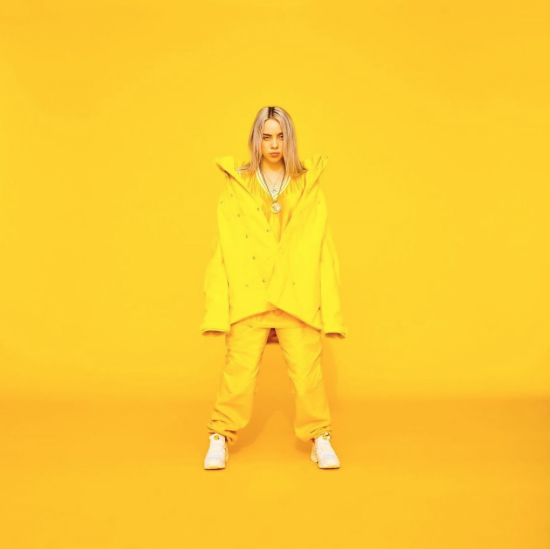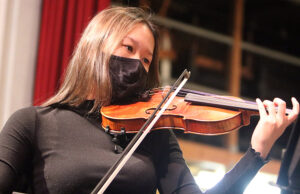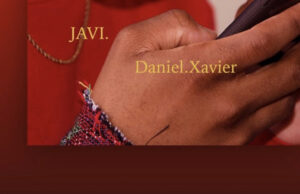17-year-old music prodigy releases new album

Billie Eilish’s new album “When We All Fall Asleep, Where Do We Go?” was released on March 29 of this year.
Billie Eilish is a 17-year-old homeschooled choir singer turned pop music prodigy, and she’s known to be the demon spawn of Lana Del Rey’s California dreams, who first compared a sweetheart’s gaze to napalm skies on her arresting 2016 single gone viral, “Ocean Eyes.” She later entertained fantasies of killing her friends on the song “Bellyache,” and warded off new ones throughout the rest of her 2017 EP, “Don’t Smile at Me.”
Yet, the smirking candor of her music sucks you in anyway: at the onset of her noirish major label debut, “When We All Fall Asleep, Where Do We Go?,” she offers a generous, audible slurp; “I’ve taken out my Invisalign,” she says. “And this is the album!” Retainer: off. Fangs: out.
Recorded with the help of her older brother Finneas in their family home in Los Angeles, it’s an album full of dressed-down avant-pop with D.I.Y. immediacy and intimacy that can still hold its own amid Top 40 maximalists like Ariana Grande and Halsey. Eilish’s sound is hyper-modern, but still feels classic; evoking another Billie in history, she sets the jazz-aware swing in her vocals over skittering trap beats and doo-wop piano asides.
After her adorkabley cute first track, Eilish transitions into, personally my favorite, track on the album. “Bad Guy” is your first impression of Billie (if you haven’t listened to her other song, which I highly suggest you do), which is a deep track with a strong beat and raw lyrics.
Eilish claims she endured recurring night terrors while recording the album—recalling visions, some real and some imagined, of abductions, severed heads, school shootings and Los Angeles in flames.
When she poses the question, “When We All Fall Asleep, Where Do We Go?,” it’s a personal one: to make peace with the twisted, dystopian Gotham that’s become her reality, where there is no Batman to save her, Eilish writes herself into characters who toe the line between good-bad and cartoonishly evil. She recalls DC Comics Harley Quinn in the slinky track “Bad Guy,” playing a comic book villain in a voice that suggests Lorde’s rascal kid sister: “I’m a make-your-momma-sad type, make-your-girlfriend-mad type, might-seduce-your-dad type,” she boasts, and with a single, sardonic “Duh,” she just narrowly gets away with it.
Yet she turns that nightmarish girl monster against herself in “Bury A Friend,” adopting a skittish iambic pentameter as she repeats “I wanna end me” over a muted goth-R&B throb. In the 20 years since its inception, never has a teen pop star so gone dark—closely paralleling the anti-pop Boogeyman of Marilyn Manson’s “Antichrist Superstar.”
In spite of her most dastardly intentions, Eilish can’t help but draw back the curtain at times and let you in. Take the glimmer of sincerity in the high-drama ballad “When the Party’s Over,” where she painstakingly wishes to be more than just herself.
Yet for every time she lets her guard down, she bounds back coolly, with a strategically distancing, impish snark. In “Xanny,” she says a hard no to drugs, if only out of respect for friends she’s lost to them: “I can’t afford to love someone who isn’t dying by mistake/In Silverlake,” she sings with the kind of wry, eye-rolling detachment most strongly fermented in adolescence. It’s moments like these when Eilish isn’t at all someone you want to fear; she’s someone you want to root for.









You must be logged in to post a comment Login